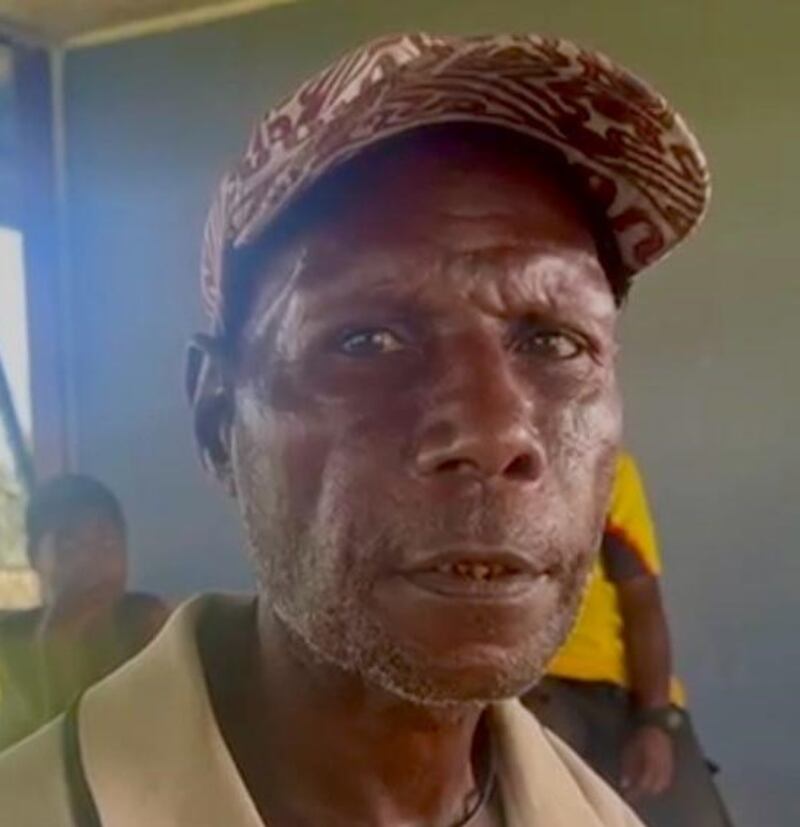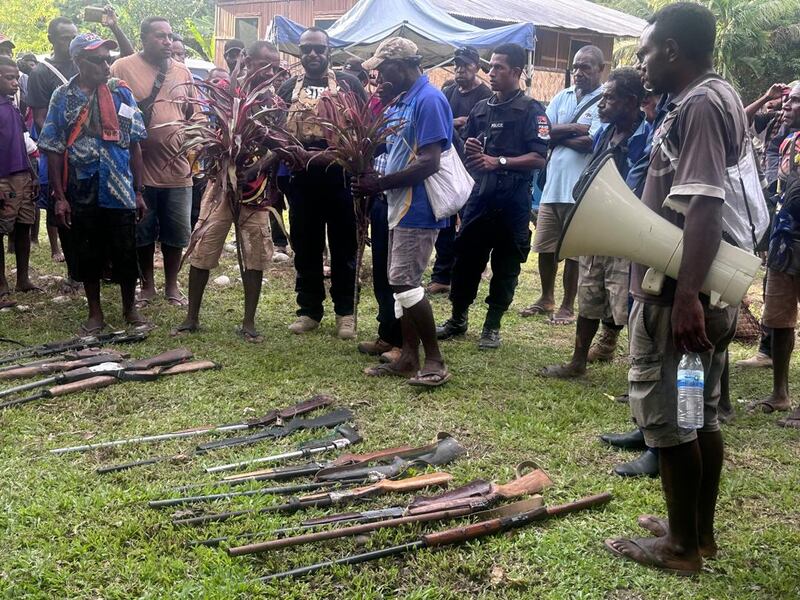Police in Papua New Guinea have witnessed a mass surrender by members of the gang allegedly responsible for the rape and massacre of 26 people in the remote north-west of the country last month.
Provincial Police Commander in East Sepik Christopher Tamari told BenarNews his men were in the town of Angoram on Tuesday when 22 males gave themselves up voluntarily to police.
Tamari said 17 of the group were members of the so-called “I don’t care” gang, allegedly responsible for attacks on two villages in swampland in the remote Yuat River tributary of the Sepik River.
“I have given direction to my policemen to bring in the suspects safely. But for those who think they are ‘heroes’ your days are numbered,” Batari told BenarNews. “Mother Nature is always on the side of the police who will bring justice and peace to society.”
The victims included a number of women and breast feeding mothers, some reportedly decapitated, while others were allegedly raped before being killed. Locals reported bodies were seen floating down the Sepik River and taken by crocodiles after the attacks.

One of the survivors, Balthasar Damai from Tambari village, told BenarNews in Angoram, the nearest town downstream from the massacre, he fled into the bushes and watched.
He said about 46 youths rampaged through his village, raping and killing and mutilating bodies.
Damai said he wants to see all the killers arrested and charged, and the government mediate a peace process among the warring families, as the survivors are in limbo and longed to return to their village homes.
UNICEF on Monday said 395 survivors of the massacre are being housed in temporary care centers in Angoram, or with relatives, where they are facing critical shortages in health care, clean water and food security.
Survivors have told BenarNews that immediately after the killings the people living in the vicinity of the Sepik River refused to buy fish from the upper river, fearing they had eaten the human remains.
One of the alleged gang leaders, Jerome Malakai, and seven of his group were arrested last week and are being held in jail in the provincial capital, Wewak. Batari said police have charged the eight with a total of 18 counts of willful murder and nine counts of rape.
Tamari expects more suspects will turn themselves in soon and urged the public to help the police restore law and order after the killings.

On Sunday Tamari organized a successful gun surrender in Lowon, a community unrelated to the massacre, where youths handed in 15 firearms to police.
Speaking to BenarNews, the local Governor of East Sepik Allan Bird said he had been told that the conflict had been festering since 2013 and remained unresolved until now.
Bird said Papua New Guinea’s police force has been weakened so much that they are almost mercenaries for hire.
“Our people want justice and when authorities fail to give them justice, they eventually do it themselves,” Bird said.
“No more using custom and compensation to resolve crimes because this method had failed in Sepik.”
Deadly clashes between tribes regularly occur in the Pacific island nation of about 12 million people, but this massacre is thought to be the first of its kind in East Sepik.
In February, 49 people were killed in the mountainous highlands and at least 16 people died in rioting in the capital Port Moresby a month earlier.
Papua New Guinea has one police officer for about every 1,800 people, nearly four times less than the level recommended by the United Nations to ensure law and order, according to a Griffith Asia Institute report released last year.
The ratio of police to people has declined substantially in the past half century since independence in 1975, as Papua New Guinea’s population more than tripled.
Many remote and inaccessible areas in the country have been largely outside central government control for decades.
